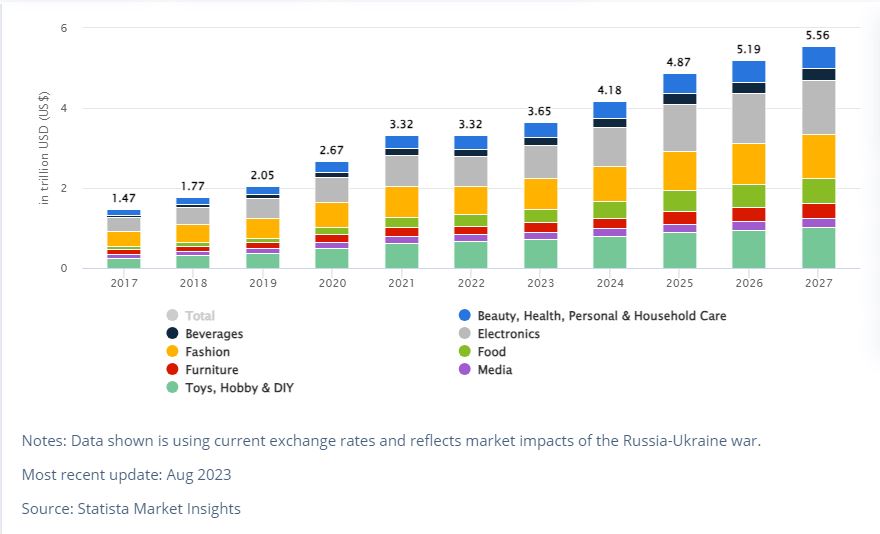The e-commerce industry is booming, having gradually established its global operations since the pandemic. Today, it’s easy to see how click-and-order stores cater to consumers from different parts of the world. All it takes is for customers to place their orders online and get their goods or items delivered to their doorsteps.
However, crossing borders for product shipping and trucking comes with some legal challenges. Most countries usually require online businesses to adhere to their local laws and regulations. Legal and regulatory compliance can drive business success by ensuring continuous operations.
So, as an e-commerce business, how do you overcome legal challenges worldwide? Read on to find the answers to this critical question and to earn some practical tips as well.
How To Overcome Legal Challenges for Your Global E-commerce Operations
The e-commerce industry has been exponentially growing and expanding, further accelerated by the pandemic. Take the recent statistics of its market growth and expansion:
The global e-commerce market could grow from $3.64 trillion this year to $5.56 trillion by 2027. It’s projected to expand at a compound annual growth rate of 11.17%.
Various niches, whether food, beverages, electronics, or fashion, contribute to and drive this market growth. It’s safe to say that e-commerce is indeed thriving.
That doesn’t mean, however, that managing e-commerce operations is relatively straightforward. They also have some potential challenges, on top of which is legal compliance. As an online business, ask yourself:
- Do you have contracts with local suppliers and service providers?
- Do you deliver products legally and safely, whether through shipping or trucking?
- Are you on top of consumer protection by ensuring quality products?
Tips To Overcome Global Legal Challenges
If you aren’t sure how to proceed, earn some practical tips below. That said, here’s how to overcome legal challenges in e-commerce operating globally:
Study the Local Laws and Regulations
Start by studying your target market and understanding the legal and regulatory requirements. It goes beyond business registration in your country of operations; it also entails seeking permits in the countries you’re operating in.
Wondering what laws and regulations to consider? Here are some:
- Cross-Border Trade Regulations: E-commerce businesses should be familiar with trade barriers, export controls, and product restrictions. These regulations vary from one country to another.
- Consumer Protection Laws: May countries set such laws to protect their local customers. They govern online transactions such as product quality, returns, refunds, and warranties.
- Data Protection and Privacy Laws: These laws cover collecting, using, and protecting customer data. European countries strictly follow the Union’s General Data Protection Regulation (GDPR). In the United States, the California Consumer Privacy Act (CCPA) is a perfect example.
Put Terms and Conditions in Writing
Setting contracts in place is imperative for an e-commerce business operating globally. It protects you and the other parties, whether working with suppliers or shipping providers. Make sure to negotiate and agree to all the terms and conditions. More importantly, put everything in writing.
You can hire legal translation services to make these contracts clear and understandable for you and the other parties. Need help with what to include? Below are key details:
- Parties involved in the contract (client and customers or service providers)
- Scope of services or products
- Timelines
- Pricing and payment terms
- Delivery terms
- Return and refund policy
- Warranties and guarantees
- Confidentiality and data protection
Will Ward, Co-Founder at Industry Arabic, highlights the importance of contracts. “They primarily seek to protect both parties, your business and the vendors you partner with. More importantly, they also protect your consumers while preventing you from financial and legal implications.”
Make Consumer Protection a Priority
As the name suggests, consumer protection safeguards consumer rights and interests when engaging in e-commerce transactions, whether purchasing products or hiring services. It guarantees that consumers have access to accurate information and are treated fairly and protected from fraudulent, deceptive, or unfair business practices.
Below are what consumer protection covers:
- Product Safety
- Advertising truth
- Reasonable pricing
- Product details
- Consumer information
- Contract transparency
Tom Golubovich, Head of Marketing & Media Relations at Ninja Transfers, always advises prioritizing customers. “They are the reasons your e-commerce business exists in the first place. Always meet consumer needs and protect their interest, which translates to customer satisfaction and business profitability.”
Stay on Top of Legal and Regulatory Compliance
Understanding the laws and regulations is one thing; complying with them is another. 100% compliance guarantees undisrupted e-commerce operations, customer satisfaction, and business success. Therefore, you should always stay on top of them.
But what legal and regulatory compliance must you consider? Here are some:
- Financial Management and Tax Compliance: This area covers fair pricing, settling financial obligations, and filing taxes.
- Logistics and Supply Chain Compliance: This part encompasses several things, from getting materials from suppliers to managing stocks in the warehouse to delivering products to customers.
- Customs and Shipping Regulations: This area focuses on delivering products to customers, such as ensuring safety for trucking or shipping.
- Network Security and Data Privacy: There’s also a need to secure your networks and systems to protect business data and consumer information.
- Intellectual Property Rights: Perform a trademark search to protect your e-commerce brand’s symbols, phrases, and designs.designs associated with your e-commerce brand.
Conduct Regular Compliance Audits
There’s no denying the importance of compliance audits. But what does it entail? A compliance audit is a thorough examination of your business activities, operations, policies, and procedures.
The goal of a compliance audit is to ensure your e-commerce business follows all relevant laws, regulations, industry standards, and internal guidelines. Audit also helps you assess your adherence to legal requirements and establish standards in various areas.
Below are some best practices to consider:
- Conduct regular audits, whether monthly or quarterly.
- Have a checklist of all laws, regulations, policies, and standards.
- Set proper documentation in place.
- Require regular reporting.
- Ensure full compliance and proper accountability
- Establish a quality assurance (QA) team for quality products and business compliance.
- Strive for continuous improvement.
- Immediately address areas for improvement.
Consult Legal Professionals for Compliance
As an entrepreneur running an e-commerce business, there are a lot of considerations to make. What’s difficult to navigate are legal and regulatory matters. So, what better way to deal with this than to hire legal professionals for compliance? They can help you stay on top of your e-commerce operations in a legal sense.
When looking for a legal expert for your online business, here’s what to consider:
- Legal expertise in international law
- Knowledge of business laws and contracts
- Familiarity with the e-commerce industry
- Industry experience and expertise
- Specialization in e-commerce compliance
- Professional networks
- Communication and Collaboration
- Languages and cultural sensitivity
Rising Above Legal Challenges for Your Global E-commerce Operations

Legal and regulatory compliance is imperative for e-commerce businesses operating worldwide. As much as possible, you should ensure full adherence to local laws and regulations. Doing so guarantees continuous operations in countries where your customers reside and contributes to your overall success.
As such, consider the practical tips for e-commerce businesses recommended above. Start by understanding the countries’ laws and regulations. More importantly, comply with the legal requirements, whether for tax compliance, supply chain, consumer protection, or data privacy.
With all these tips and steps, you’ll rise above any legal challenges in your global operations. Ultimately, you’re on your way to e-commerce success and global competitiveness.

